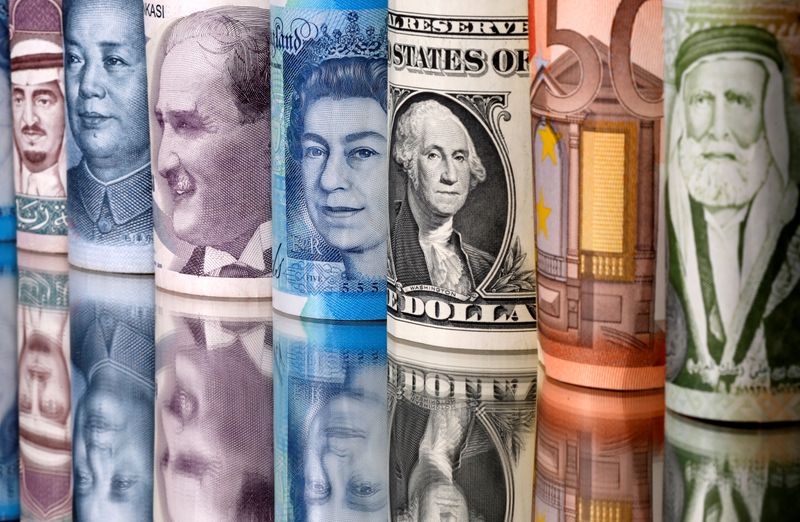By Karen Brettell
NEW YORK (Reuters) - The dollar dipped to one-week lows against a basket of currencies on Monday as stocks hit record highs, and as investors waited on the next catalyst to drive direction.
The dollar has rebounded this year along with rising U.S. Treasury yields as investors bet on faster U.S. economic growth and higher inflation as the economy reopens after COVID-19-related business shutdowns.
The greenback has generally risen at the same time as stocks gain. Investors are now watching to see if that relationship continues as it may indicate a shift in how the currency responds to improving risk appetite.
“The trickiest thing for markets right now is to figure out what the dollar’s sensitivity is to good U.S. economic news,” said Erik Nelson, a macro strategist at Wells Fargo (NYSE:WFC) in New York.
“This is a huge question because if we’re entering a phase where the dollar is no longer a safe haven and more of a ‘risk on’ currency, that’s big regime change,” Nelson said.
The dollar fell on Monday as stocks gained. It was last down 0.20% against a basket of currencies at 92.77. It has fallen from 93.44 on Wednesday, which was the highest since Nov. 5.
The greenback had rallied on Friday after data showed that the U.S. economy created the most jobs in seven months in March as more Americans got vaccinated and the government doled out additional pandemic relief money, marking the start of what could be the strongest economic performance this year in nearly four decades.
Trading volumes were light on Friday, however, with many traders out for the Good Friday holiday. Financial markets in Britain were also closed on Monday.

The euro gained 0.29% to $1.1786. Sterling rose 0.42% to 1.3886. The Australian dollar, which typically rises when risk appetite is strong, gained 0.64% to $0.7639.
Investors are also focused on U.S. President Joe Biden’s proposed infrastructure plan, which would involve raising corporate taxes to pay for the new spending.
Biden would be willing to push through his $2 trillion infrastructure plan without the support of Republican lawmakers if he cannot reach a bipartisan deal, Energy Secretary Jennifer Granholm said on Sunday.